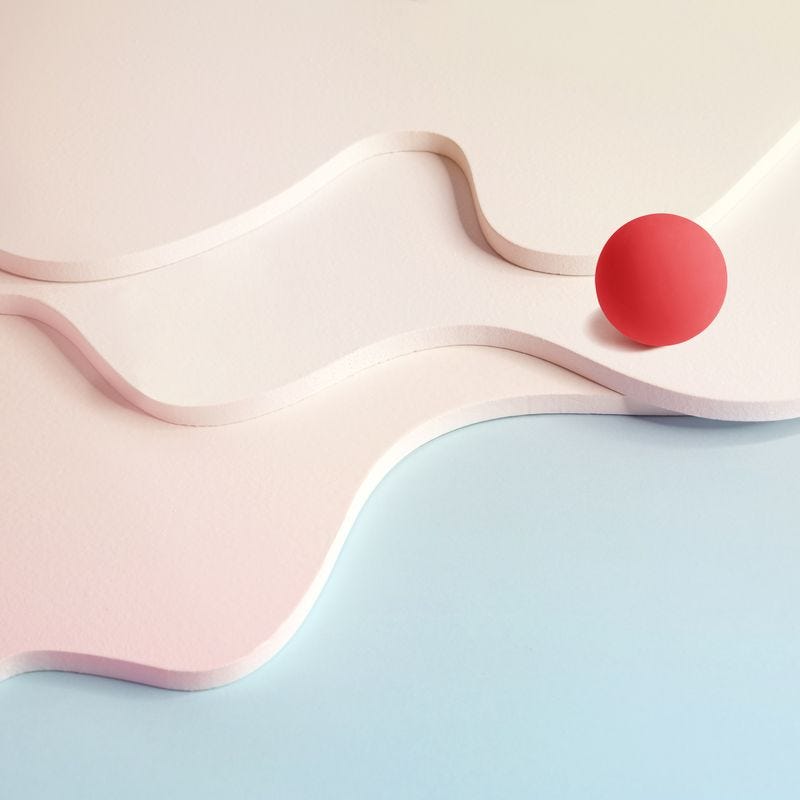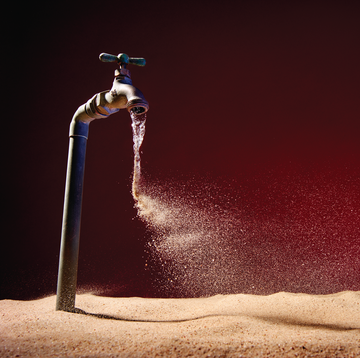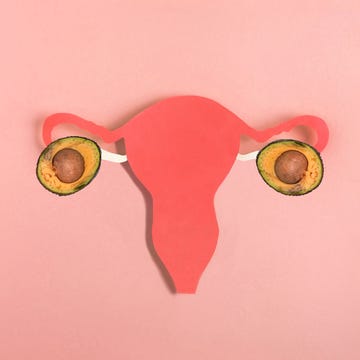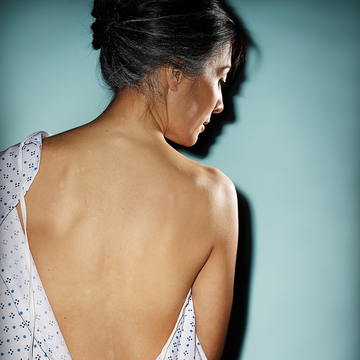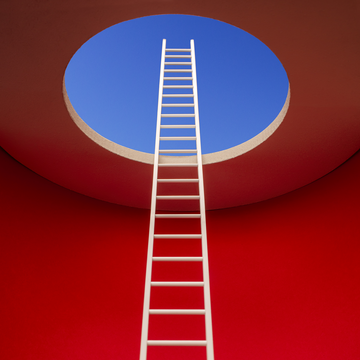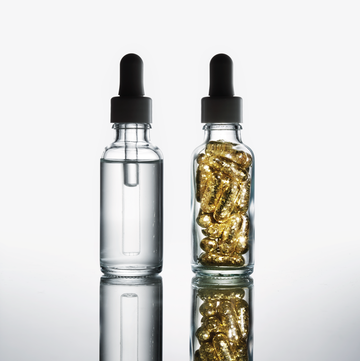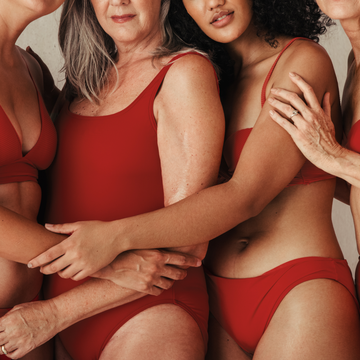Years ago, when middle age seemed like it only happened to other people, I took an Ashtanga class in Montauk. As I clumsily shifted from downward dog to chaturanga, I noticed an older woman at the front of class, with gray braids, a purple T-shirt, and lithe, taut limbs. She seemed to swim from pose to pose, as graceful as a seal in water. A beatific peace emanated from her that I have been thinking about more and more as I enter this next decade: 50. A friend’s older sister recently told her that “after 50, you can kiss your beauty goodbye.” Could that be true? I may be naive, stubborn, and vain, but I refuse to accept this pronouncement. I don’t aspire to be one of those “well-preserved” faces of the Upper East Side or Beverly Hills. I want to become some version of that beautiful wise yoga sage, but how?
A few years ago, I started a morning regimen of 25 minutes of yoga and five minutes of meditation. Brief, achievable, and surprisingly helpful in many ways. I kept to it for quite a while, maybe 18 months, and even started to find a little inner peace, or at least mental clarity. But it became much harder to summon the will once I entered perimenopause. Defined as the 10 or so years before you experience your final period, perimenopause is menopause’s dirty little secret, and it can hit at any moment, usually after you turn 40. For me, the onslaught arrived in the form of intense mood swings, alternating bouts of tears and rage, sleeplessness, and weight gain. I thought I was going crazy.
More From Oprah Daily

There is a simple reason we feel like we’ve fallen off a cliff as we approach our sixth decade. It’s biological, and unique to those of us born with ovaries. We experience menopause because those ovaries stop producing estrogen, one of three hormones essential for sexual development and reproduction. But estrogen is not just essential to our sex; there are estrogen receptors in almost every cell of our bodies. And it’s the sudden loss of estrogen that is responsible for every single symptom of menopause: hot flashes, sleep disruption, brain fog, loss of skin elasticity, hair loss, vaginal dryness, mood swings, dry eye, dry ear—you name it. Seriously, all of it. And it’s the reason we feel like hell.
Theories abound about why we experience this transition. In 1900, most women died around 50. Modern medicine has since made it possible for us to live into our 90s, but maybe evolution hasn’t worked quickly enough for our bodies to catch up. There is probably something to be learned from the killer whales of the Pacific, one of the only species aside from humans to experience menopause. Long past the end of their reproductive years, female orcas lead the young male whales in their pods on expeditions across the ocean, showing them the best hunting territories—sharing wisdom hard-won over long lives.
For me, the best thing about getting older is a thrilling, newfound, “F-it” kind of confidence; the certainty that I am absolutely done worrying about what everyone else thinks. Nonetheless, and maybe in direct contradiction to that statement, I have to admit that the visible, physical effects of aging really sting. Losing hair in the shower, or glimpsing a little too much scalp at the part, can ruin a morning. And enough about the well-earned lines in our faces and the graceful aging of older French film stars. There is much to embrace about our lengthening lives, our accumulated wisdom, our sorting out of what’s important in life. But, regardless of your attitude toward getting older, no one likes to think of their skin as “crepey.” One beautiful friend recently lamented the quality of the skin around her hips and abdomen. Another often decries her “bat wings.” These body parts are not the public billboards that our faces are; these are more private sources of mourning and self-flagellation.
My best friend from childhood and I found ourselves pregnant with our first children at the same time. We traded daily phone calls to bemoan the secret horrors of pregnancy. “Hemorrhoids? Now we’re getting hemorrhoids?” she began one conversation. “There’s just this endless parade of indignities that no one warned us about.” Our mothers, hers a stunning, blond Eastern European and mine a sunny American, prone to glorifying, had definitely not been forthcoming with the details of this stage of life. But if the not-so-pretty surprises of childbearing were something our mothers glossed over, they buried the indignities of perimenopause and menopause deep in the ground and threw away the shovel. There’s no asking them now. Mine is gone; my best friend’s, fading into the fog of memory loss.
In 2023 there are lots of people trying to help us ease this transition. There are teas, meditations, gratitude journals, nutrition coaches, 30-day diets, fasts, and yoga retreats. There are book groups, podcasts, and apps. Many of them are helpful. As we continue to extend our life spans, we will have to figure out how to live longer, better, healthier, and happier. Some of that is a mystery to be puzzled out collectively, in the company of others on the journey. A big part of the solution, however, is based in science that has been with us for decades.
Replenishing your body with a small amount of the estrogen it no longer makes is a safe, time-tested, FDA-approved solution to menopause symptoms. Systemic estrogen taken as a patch or pill greatly reduces hot flashes and other symptoms. And topical vaginal estradiol cream not only soothes vaginal dryness but strengthens and rebuilds the walls of your vagina and bladder. There was a study done 20 years ago that put a lot of fear into the world that estrogen therapy caused breast cancer, but that data has been reexamined by experts, and, in fact, what the study showed over time was that women who took estrogen therapy alone actually had a decreased risk of breast cancer. The very small risk that was found in the study has since been shown to be tied to the synthetic progesterone prescribed in that study. The micronized progesterone that is now commonly prescribed has never been linked to an increase in breast cancer. For some reason, this news has never made headlines, and women have continued to suffer needlessly for the past 20 years. The evidence is clear, and the experts, including those at the American College of Obstetricians and Gynecologists (ACOG) and the North American Menopause Society (NAMS), agree: For the vast majority of healthy women, the benefits of menopausal hormone therapy far outweigh the risks. Period. And the lack of clarity on this topic has caused much harm. (For more information, please read the 2022 NAMS position statement at menopause.org.)
When I realized the extent of the misinformation around menopause, I knew I had to do more than call my best friend and bitch about my mood swings (though I did that, too). I started a company with a friend who endured surgical menopause at 40. In our online support groups and live events, week after week, we’ve heard the stories of women who have suffered intensely for years, who are profoundly relieved to have found answers and solutions to their symptoms. The experience has been beyond gratifying, and three years after leaving my magazine career to launch Alloy, a digital health platform solving aging and the symptoms of menopause for women over 40, I am now on a low-dose birth control pill to regulate the fluctuating hormones of perimenopause. My mood has greatly improved, and I’ve returned to the yoga and meditation apps, which are definitely helping. Have I achieved purple yoga sage-level enlightenment or the grace and laser-sharp precision of the orcas? Not quite. But do I believe I’ve kissed beauty goodbye? Not a chance.
The spark I glimpsed all those years ago in the yoga studio came from something that has nothing to do with taut skin or plump lips, and more to do with joy, light, flow, a comfort with sex, a sense of belonging. Another older woman I remember so clearly from years ago had sat across from me on the subway. She had a silver-white bob, blue eyes, and sapphire rings, and was surrounded by family. Her face was lined, her eyes smiling. As I stared at her, trying to divine the secret to her buoyant equanimity, she smiled, and I glimpsed the beautiful badassery of a chieftainess. She was simply magnificent. I hold her and yoga sage as beacons from years ahead, models of who I can still be, and I can’t wait.
Any content published by Oprah Daily is for informational purposes only and does not constitute medical advice, diagnosis, or treatment. It should not be regarded as a substitute for professional guidance from your healthcare provider.
Anne Fulenwider is the former editor in chief of Marie Claire and the cofounder of Alloy Women’s Health, a digital health platform solving aging and the symptoms of menopause for women over 40.
In a refreshingly candid conversation with Oprah Daily Insiders, Oprah, Maria Shriver, Drew Barrymore, and doctors Sharon Malone, Heather Hirsch, and Judith Joseph, we set the record straight on all things menopause. Become an Oprah Daily Insider now to get access to this conversation and the full "The Life You Want” Class library.

